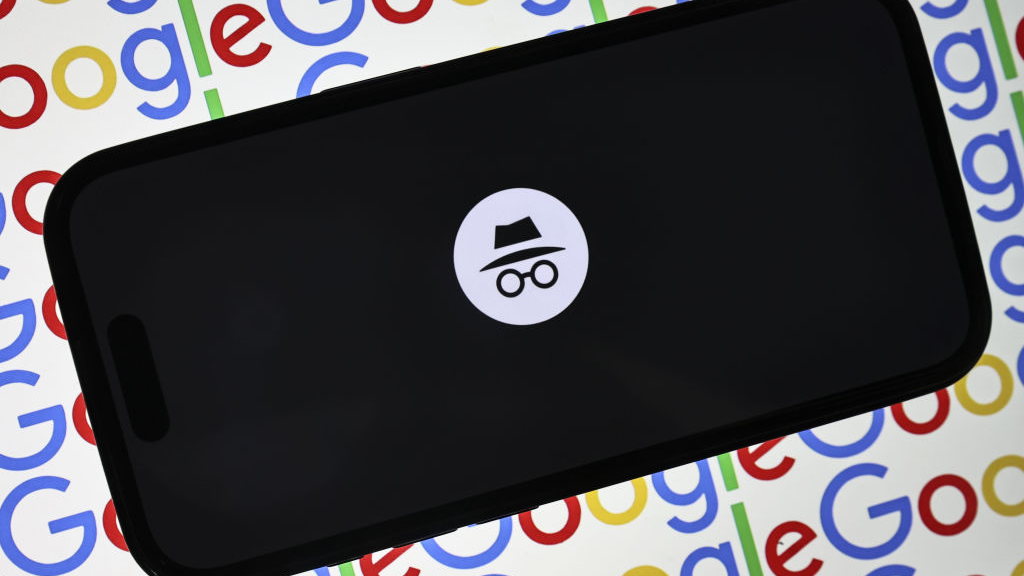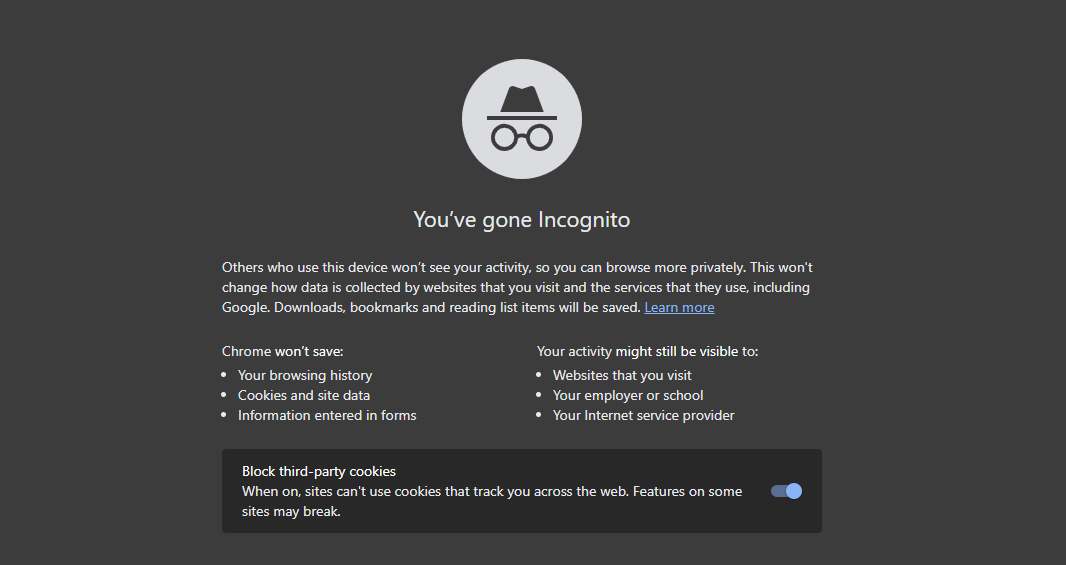Google Incognito data to be erased—but what happens next?
Can you really trust a Big Tech promise?

Incognito—it's an evocative word, right? It conjures up images of disguises, trenchcoats, and undercover adventures, with Google's "Spy Guy" Incognito icon doubling down on the imagery. Unfortunately, though, the reality of Google's Incognito Mode doesn't really leave up to its name choice.
News broke earlier this week that Google will delete data records from Incognito Mode sessions as part of a lawsuit settlement. The lawsuit points the finger at the Big Tech giant, claiming that it's been collecting and storing this data since, probably, the initial launch of Incognito Mode.
That's a huge amount of pilfered information, ironically collected when users sought to keep their browsing data private. Even worse, perhaps, that's just the latest in a long string of privacy fails involving the Big Tech giant. So, is there anything we can do to ensure the harvesting ends there?
OLD INTRO
Incognito—it's an evocative word, right? It conjures up images of disguises, trenchcoats, and undercover adventures, and Google's "Spy Guy" Incognito icon doubles down on the imagery.
Unfortunately, the reality is that, when it comes to Incognito Mode, it's just a veneer—a fantasy that uses choice semantics and curated imagery to dupe us into assuming the best. Namely, that Incognito Mode will keep us (and our browsing sessions) incognito.
News broke earlier this week that Google will delete data records from Incognito Mode sessions as part of a lawsuit settlement. The lawsuit points the finger at the Big Tech giant, claiming that it's been collecting and storing this data since, probably, the initial launch of Incognito Mode.
Sign up for breaking news, reviews, opinion, top tech deals, and more.
That's a huge amount of pilfered information. It's been described as an Orwellian dream and, back in 2018, a Google engineer was even reported to have said:
"We need to stop calling it incognito and stop using a Spy Guy icon."
Google Incognito Mode: what's changing
Contrary to what the name implies, Google Incognito Mode does not keep your browsing fully private, but it should rather limit the data your browser collects about you. Yet, it has often been described more as an Orwellian dream—with the most recent legal case being the best example of that. Back in 2018, a Google engineer was even reported to have said: "We need to stop calling it incognito and stop using a Spy Guy icon."
The Incognito Mode class-action lawsuit was initially raised in 2020. To settle the case, Google has agreed to erase its collection of stored data containing details of personal browsing sessions. Google has also agreed to do a better job of disclosing which data will be collected when someone opens up an Incognito Mode tab.
Another change to Incognito Mode will need to be maintained, too, wherein users have the option to block third-party cookies. This is an additional privacy-boosting measure that should, in theory, help us all recover a fraction of our digital privacy—and cut down on the amount of data gobbled up by Google.
New privacy horizons?
The settlement brings this most recent round of Google privacy blunders to a close—but will Google stop collecting Incognito Mode session data? The grim truth is, unfortunately, that the company could continue to monitor the habits and activity of people relying on Incognito Mode for its apparent privacy and just not tell us.
The case's plaintiffs take a more hopeful view of matters, citing that the settlement will prompt Google to act more transparently when it comes to data collection.
I'm a cynic by nature, but Google has already committed to rolling out its third-party cookie-blocking measures, which is a tentative first step in the right direction—and at the very least grants users more control over how their data is used. These measures will be kept in place for five years, at least, as per the settlement.
However, telling the truth about its approach to data collection isn't really in Google’s best interests.
Google has agreed to redress its data-gathering disclosures and limit the scope of some of its collections. You can open up a new Incognito Mode tab right now to see the changes—where Google lays out that, while anyone else using the device won't see your browsing history, the company itself can still collect that data.
These updates are good news for us privacy-minded people, but the Google machine thrives on data, requiring a near-constant supply of information to feed to its advertising enterprise. Less data means less profit, so why would a multi-billion corporation like Google willingly take a torch to one of its main channels of revenue?

How can we really keep our browsing data private?
Well, the threat of expensive lawsuits seems to do the trick—though it is galling to realize that it takes a drawn-out court case to get Google to improve and update its commitment to user privacy.
How does Google get away with these incidents, over and over? I'm certain it's down to the overwhelming ubiquity of the company and its online products. Put it this way, Google lays claim to an 82% chunk of the search engine market on desktop, and 95% on mobile.
It can feel hard to get away from Google. It can leave us wondering, well, what can you do besides continue to use the search engine, word processor, spreadsheets, etc. I don’t believe in letting doom and gloom get in the way of digital privacy, however, and strongly recommend getting your hands on one of the best VPNs around.
VPN encryption prevents third-party snoopers from accessing your data—even if they happen to intercept it. Plus, a VPN's IP-spoofing powers allow you to go about your day-to-day browsing without worrying about leaving an identifiable trail across the web.
If you're more concerned about personal data that's already out there, you'll want to check out the Incogni service, which scours the web and databases of data brokers for traces of your information. If it finds any of your details, it'll clean it up and remove it, putting a stop to profiteering rackets, reducing the amount of spam you receive, and helping you reclaim your privacy.
You can get the best of both worlds, in fact, by subscribing to NordVPN or Surfshark—two stellar VPN services that include Incogni as part of their premium subscription plans.

River is a Tech Software Editor and VPN expert, helping take care of cybersecurity content on TechRadar, ranging from reviews, buying guides, and must-have VPN deals. River's expertise in the cybersecurity field opened their eyes to the startling amount of online snooping we accept into our daily lives. Now, River is committed to fighting for your right to digital privacy by shining a light on its biggest threats – and helping readers safeguard their data with the help of a VPN. Surfshark is River's favorite VPN, and they use it every day to keep their most sensitive details out of the hands of third-party trackers.